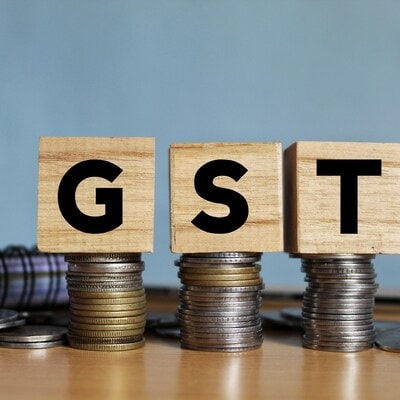[ad_1]
The Directorate General of GST Intelligence (DGGI), a central investigation and anti-evasion arm under the finance ministry, detected the highest-ever Goods and Services Tax (GST) evasion by the online money gaming industry at Rs 81,875 crore in FY24 across 78 cases.
In its latest annual report, DGGI said it has detected 6,084 cases of tax evasion—the highest ever—involving Rs 2.01 trillion of GST in 2023-24. This is twice the tax evasion identified in 2022-23 at Rs 1.01 trillion, which involved 4,872 cases.
The report indicates that approximately 46 per cent of the evasion cases were related to non-payment of taxes through clandestine supply and undervaluation, 20 per cent involved fraudulent Input Tax Credit (ITC), and 19 per cent pertained to the improper claim or failure to reverse ITC.
In terms of sectors, online money gaming was followed by the BFSI sector, which saw Rs 18,961 crore evaded in 171 cases. Works contract services and pharmaceuticals reported 343 and 22 cases of evasion, amounting to Rs 2,846 crore and Rs 40 crore, respectively.
Furthermore, 1,976 cases of GST evasion were identified in the iron, copper, scrap, and alloys sectors, involving Rs 16,806 crore in evaded taxes during 2023-24.
Pan masala, tobacco, cigarettes, and bidi ranked second with 212 cases, totalling Rs 5,794 crore in evasion. The plywood, timber, and paper sectors accounted for 238 cases with Rs 1,196 crore in evaded taxes. Electronic items had 23 cases involving Rs 1,165 crore, while marble, granite, and tiles had 235 cases with Rs 315 crore in evaded taxes.
The DGGI report also mentioned that an inter-departmental committee with representatives from the Enforcement Directorate, Reserve Bank of India, and tax and consumer affairs departments may be set up to combat the proliferation of online gaming platforms and ensure regulatory compliance.
“Therefore, a multi-pronged approach to deal with this sector is the need of the hour. An inter-department committee comprising CBIC, CBDT, ED, MeitY, MCA, MIB, RBI, Department of Consumer Affairs, and the like along with industry bodies may be set up to develop comprehensive strategies and regulations to combat the proliferation of such platforms, ensuring regulatory compliance, consumer protection, and national security,” the DGGI said in its report released on Saturday.
The GST intelligence wing has initiated action against 118 domestic online gaming entities, and show cause notices have been issued to 34 taxpayers involving a tax amount of Rs 1.1 trillion. The notices were issued to these gaming companies as they were not paying GST at the 28 per cent rate.
Furthermore, 658 offshore entities have been identified as non-registered/non-compliant entities and are being investigated by the DGGI. Also, 167 URLs/websites have been recommended for blocking.
The DGGI annual report 2023-24 flagged that online money gaming is a “high-risk” industry for tax evasion, money laundering, cyber frauds, juvenile delinquency, and various socio-economic evils.
Despite the legal clarity with effect from October 1, 2023, bringing the gaming entities under the tax net continues to be an uphill task.
Many such firms are set up in offshore tax havens (i.e., Malta, Curacao Islands, British Virgin Islands, Cyprus, etc.) known for their opacity, thus making it difficult to ascertain their ultimate ownership.
In October 2023, the government clarified in the GST law that online gaming attracts a 28 per cent tax on the total sum deposited by the players with the entity.
The online gaming industry has grown exponentially in the last few years, at a compound annual growth rate (CAGR) of 28 per cent, reaching Rs 16,428 crore in FY24, as per an estimate.
This boost is largely attributed to factors like widespread smartphone penetration, improved internet connectivity, a growing youth population, and the development of local gaming content.
First Published: Sep 15 2024 | 8:16 PM IS
[ad_2]
Source link

